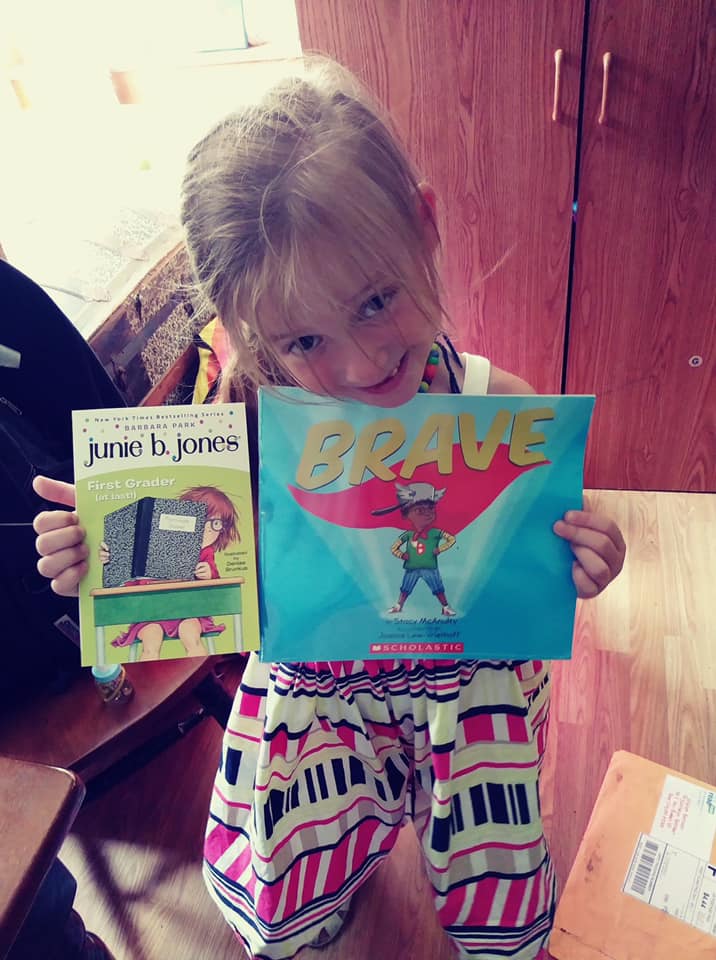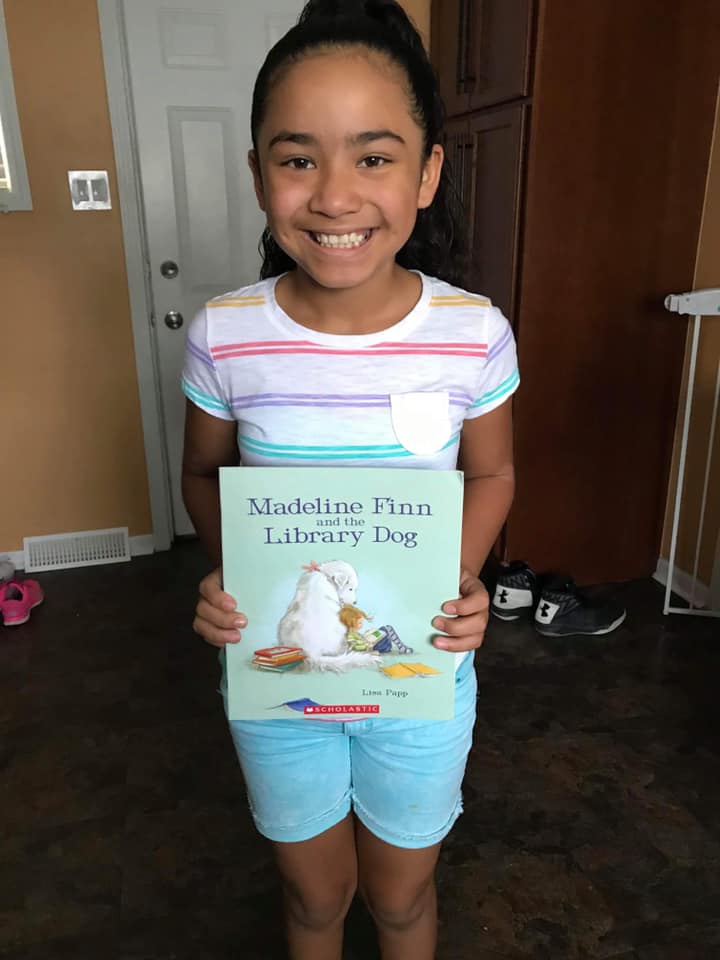
Kids Read Now Transforms Summer Learning for Underserved Children
Kids Read Now is a nonprofit tackling one of the most persistent educational challenges in America: the “summer slide” in reading proficiency among underserved children. By mailing free, self-selected books directly to children’s homes during summer break—and pairing each title with caregiver-friendly activities—Kids Read Now eliminates key barriers to literacy: book scarcity, limited school-year support, and lack of parental engagement tools. Since its founding, the organization has served over 600,000 children and delivered more than 4 million books, turning homes in “book deserts” into miniature libraries that foster joy, confidence, and academic readiness.
Kars4Kids awarded a small grant to Kids Read Now because their model spoke to our mission to support children’s development in the most meaningful ways. What stood out to us wasn’t just the sheer reach of their work or the measurable literacy gains, but the fact that they provide this high-caliber, evidence-based programming at no cost to families. By centering student choice, partnering closely with educators, and empowering caregivers, Kids Read Now is changing the literacy landscape for the children who need it most—one book at a time.
We put some questions to Kids Read Now CEO Kristen Walter to find out more about this work:
Kars4Kids: What do the students and families you serve tend to have in common in terms of background or educational challenges?
Kristen Walter: Students and families served by Kids Read Now often face the following common backgrounds and educational challenges. They often live in traditionally under-resourced economic areas that are basically book deserts. Limited access to books means fewer literacy resources available. In addition to these issues, there are few reading support systems, and fewer resources and activities over the long summer vacation, leaving students at risk for summer learning loss.
These challenges contribute to a widening achievement gap, particularly during the summer months when school is out and learning support is often minimal. Kids Read Now addresses this gap by providing grade-level books and family engagement activities directly to students and families, reducing barriers to building home libraries.
Kars4Kids: Can you share the origin story of Kids Read Now and what inspired its founders to address the summer reading slide?
Kristen Walter: Kids Read Now was founded by Leib and Barb Lurie in 2012 to combat summer slide, a significant barrier to literacy in under-resourced areas. Recognizing that most reading programs end with the school year, they created a unique in-home solution: mailing self-selected books to students over the summer, with built-in parental engagement and educator tools. What began as a grassroots effort has evolved into a national program serving hundreds of districts nationwide and helping children develop a lifelong love of reading.
Kars4Kids: How does the Kids Read Now program specifically target and support at-risk students in PK-5 to bridge reading gaps?
Kristen Walter: Kids Read Now supports at-risk students in PK–5 by focusing on eliminating barriers to book access and engaging families in literacy year-round. Specifically…
- Book Choice & Delivery: Students choose books they’re interested in from a curated list of high-interest, age-appropriate titles. These books are then mailed directly to their homes, addressing the common barrier of limited access to books outside of school.
- Parental Engagement: Each book includes a Discovery Sheet with text-based engagement activities and prompts that help caregivers engage in meaningful reading discussions with their children, regardless of their own reading level. This turns caregivers into literacy partners.
- Consistent Contact: We maintain regular communication with families through calls, texts, and emails, designed to encourage participation, remind them to read, and celebrate their progress.
- Data & Reporting: Schools have access to reports on student reading activity and family engagement, enabling educators to identify who needs additional support.
- Focus on At-Risk Students: KRN is specifically designed for students who are economically disadvantaged and/or reading below grade level. These students are prioritized for enrollment and support through the use of Title funding.
- Summer Slide Prevention: By sending 9 books over the summer and promoting reading habits, Kids Read Now helps prevent learning loss that disproportionately affects low-income and struggling readers.
Together, these elements create a low-cost, scalable model for boosting reading achievement and closing equity gaps in literacy.
Kars4Kids: What role, if any, does student choice play in the book selection process?
Kristen Walter: Student choice plays a central role in the book selection process with Kids Read Now (KRN). The program is built on the idea that students are more likely to read and enjoy reading when they get to choose their own books. Choice is integrated into the program through:
- Student Book Wish Lists: At the start of the program, students (with help from teachers and family) select titles from a curated catalog of over 180 popular titles. These books are selected to appeal to a wide range of reading levels, genres, and interests.
- In-Home Delivery: Each summer, students receive 9 books by mail, and the titles they receive are directly pulled from their selections, reinforcing that the books are their own choices.
- Promoting Engagement: This autonomy helps foster a sense of ownership, excitement, and intrinsic motivation to read, which is particularly important for struggling or reluctant readers.
By prioritizing student choice, Kids Read Now aligns with research showing that reading motivation increases when students can select what they read—a key factor in bridging reading gaps and reducing the summer slide.

Kars4Kids: How does Kids Read Now work with teachers and parents to help students succeed in the program?
Kristen Walter: Schools participating in the summer program enroll students with their home address so that books can be mailed home. Educators familiar with the child’s reading levels and growth goals assist each child in selecting books for independent reading practice, helping them stretch their reading level. Participating educators also host an optional kickoff event for participating families. It’s often held in conjunction with a previously scheduled school event or assembly. Students receive their first book, caregivers receive an overview of the program, and instruction on how to report books as read over the summer. It is an exciting event!
Teachers can also monitor students’ progress via a secure portal, viewing lists of selected books, books reported, and analytics.
As for parents, we offer a family reading event where parents receive a detailed parent guide along with instructions on how to report reading via the parent portal, app, or text. The books arrive at home roughly every 8–10 days, each with a discovery sheet inside the cover—four fun, text-based literacy-building activities. Parents report completion via app, parent portal, text, or phone. Kids Read Now sends weekly reminders and parent tips to help maintain momentum. Students who report all books as read can earn a certificate and prize, which boosts motivation and celebrates progress. By working together, teachers and parents consistently engaging with the students and their book choices, the program solidifies skills and builds lifelong reading habits among PK–5 students.
Kars4Kids: What measurable outcomes or improvements have you observed in students’ reading skills since implementing the program?
Kristen Walter: Independent studies have shown that students who participate in KRN’s summer reading and engagement program experience reading gains equivalent to those in structured summer school programs, but at a fraction of the cost. KRN significantly reduces or eliminates the typical 2-3 month summer learning loss in reading for many students, particularly those from low-income families. Kids Read Now regularly participates in such independent efficacy studies. The most recent study, conducted by Dr. Geoffrey Borman, showed reading gains of 2-4 months throughout the KRN summer program. Participating students often demonstrate improved reading fluency when assessed in fall standardized testing.
Kars4Kids: How does Kids Read Now make sure that cost isn’t a barrier for families who want to participate?
Kristen Walter: Our services are provided at zero cost for our students and their families. Kids Read Now is a 501(c)(3) nonprofit, and partner school districts, social service organizations, and donors help fund the program, so that students, regardless of their families’ financial situation, can benefit. We work to develop relationships with foundations and grantors (like Kars4Kids) to keep costs low for our school and community partners, so it is an affordable program for schools to provide to families.
The books are mailed directly to students’ homes—no need for tech devices or internet access. KRN’s programs close access gaps for families without digital resources. Teachers and administrators manage enrollment and selection through the school, removing the administrative burden from families who need access to high-quality materials throughout the year. Participating caregivers receive free books to keep and guidance.
Kars4Kids: How many children has Kids Read Now served so far, and how many books have been delivered through the program?
Kristen Walter: Since 2017, we have served over 604,000 students and mailed 4.4 million books to homes.
Kars4Kids: Is there a particular moment or story that captures what Kids Read Now is all about?
Kristen Walter: Each year, we have a standout story or two from teachers, parents, and students, and their love for the program. It may be a parent who’s thrilled their child has a newfound love of reading. Or, a teacher who is excited about improved fall testing scores. My favorite example from the past year is a principal in New York who reported that 97% of her enrolled students maintained or improved their reading scores over the summer, attributing it entirely to our program. We work diligently to analyze our process and continually improve it each year, ensuring that we do everything possible to provide the highest quality programming. Hearing success stories like this one, with the excitement in her voice as she shares it… it’s powerful.

Kars4Kids: What’s next for Kids Read Now?
Kristen Walter: We have two exciting initiatives on the horizon: family and community engagement training sessions and expanding beyond schools. This past spring, we piloted caregiver and parent liaison training sessions, during which we modeled reading activities and provided concrete strategies for integrating reading throughout the day. We aim to help caregivers feel that meeting reading goals is achievable and actionable. We’ve expanded this work to three additional states across multiple sites, receiving great feedback. Additionally, we are extending our efforts beyond schools to meet families where they are, working with community centers, food distribution sites, and adult tutoring organizations. We’ve found that collaborating with parallel non-profit partners means families are receiving wrap-around services and access to literacy support.